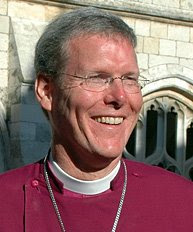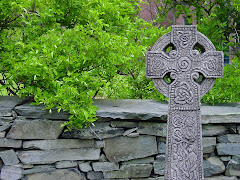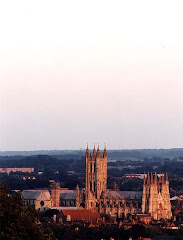
I am mindful, once again, of the words of the Archbishop of Canterbury at the beginning of our time together—that we should not expect that this conference would solve the issues facing the Anglican Communion but that it would be reasonable and realistic to hope that our trust in one another would be renewed in such a way that we might be empowered to change in whatever way God intends.
Placing ourselves in the hands of the living God is always a risky thing, of course.
Over these past few weeks the spirit of God has certainly moved among us—sometimes quietly and unseen, sometimes more apparently, sometimes loudly, sometimes with consolation, and sometimes with deep and demanding challenge. We have not resolved all the issues of the Anglican Communion, particularly those focusing on human sexuality. That much is clear and should come as no surprise. But it is also quite evident that people really did come to this conference ready to listen and to speak and with both the will and the heart to learn from one another and to understand. As one bishop observed, “the hardest language to learn is the language of our neighbor.” The result? A deep and respectful attentiveness to our relationships across this Communion that will inevitably serve our common mission in the days ahead.
What has been produced? A paper capturing the conversations of the sixteen “Indaba Groups” (40 bishops per group) that met daily over the past few weeks. That document is available at http://www.lambethconference.org/reflections/document.cfm .
It is important to note that this paper is not intended to be conclusive. Archbishop Roger Herft of Perth who chaired the writing committee said simply that it is intended to be a “snapshot of the encounters that have enriched and changed us.” It is, in other words, descriptive rather than prescriptive. It is not legislation. It has not been voted on. “It is not,” in the words of the Archbishop of Canterbury, “a report of the Lambeth Conference.”
None of which should minimize it’s significance. It is quite simply a faithful record of conversations held among bishops of the Anglican Communion, gathered solemnly in prayer and bible study under the guidance of the Holy Spirit. In that is its weight, and that weight is sufficient.
What will happen? This afternoon Archbishop Rowan William delivered his final presidential address (the full text of which is available at http://www.lambethconference.org/daily/news.cfm/2008/8/3/ACNS4511). In it he observed that among the gathered bishops “there is no desire to separate.” The widespread commitment of bishops to the unity of the Anglican Communion has been clear throughout the conference. Archbishop Williams went on, however, to raise significant and serious questions about the true nature of Christian unity and what that might mean both theologically and practically if indeed we desire to be something more than “an association of polite friends.” Therein lies the challenge.
Given the amount of listening I have done over these weeks, and given the amount of information that I have taken in, I intend simply to sit with it all prayerfully for now. I will write more later, so do keep checking this blog.
Which brings me back to the risk and consolation of surrendering ourselves—or, more accurately our selves—into the hands of the living God. If God indeed intends to give birth to something new and divine among us, none of us can afford to say anything other than, “Let it be to me according to your word.”








